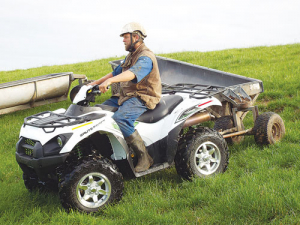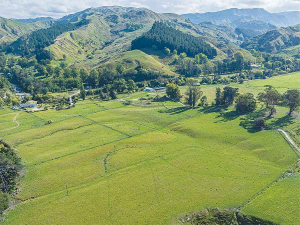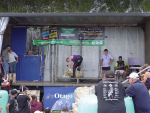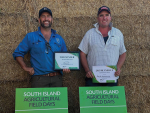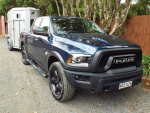Applauding the work of WorkSafe and ACC, and support from industry organisations, Windley said 14 deaths in 2016 and several in 2017 indicate a need for “further work”.
She urged the Government to consider mandating roll-over protection structures (ROPS) for quads, a rebate or subsidy for rider training, the fitment of ROPS devices or the use of alternative vehicles.
She also drew attention to a study by the Transport and Road Safety (TARS) organisation at the University of NSW, Sydney, looking at the efficacy of two operator protection devices (OPD).
The quad industry consensus was that they were likely to cause as many injuries as they prevent, suggesting a need for a much wider study to achieve worthwhile results.
TARS said the same about the use of safety helmets, which is puzzling considering their use by motorcyclists.
Hobart, Tasmania, coroner Simon Cooper said the wearing of a suitable helmet should be the most important safety message. He cited industry research that showed 30% of Australian quad fatalities could have been avoided if riders had been wearing helmets.
Cooper also said the Australian Government should mandate formal rider training for all, a message already promoted by quad and side-by-side vehicle manufacturers. And he recommended banning riders aged less than 16 from riding full-size machines; these riders are in 20% of all Australian quad deaths.
Cooper asked for a star-rating system designed to help would-be quad buyers select the correct machine for their task.
And of OPDs the coroner said it was impossible to recommend their fitment to quads, as urged by the proponents of such devices.
Industry experts suggest OPDs alter the centre of gravity of a quad and can restrict active riding, which is an inherent part of their operation and control.
Problem: quads look easy to use -- select drive, hit the throttle and off you go. Confidence, indeed over-confidence, comes quickly with this and it can get novice riders into situations they are not prepared for and can quickly lead to accidents.
There must be a case for formal training on these vehicles, to cover all aspects of operation with a focus on changing terrain, plus its effects on traction, balance and safety, plus an action plan to followed if things go pear-shaped.
Unfortunately, the fitment of a ROPS or OPD device resembles a Band-Aid on a severed artery, and until we see a substantial change in attitude towards operating these machines the carnage will continue.
Surely helmets and sensible clothing at all times should be the norm – much like reaching for the seatbelt when getting into a car. Helmets and no riders younger than 16 on full-size machines could prevent 50% of all quad-derived deaths.
Is it really too much to ask?
5-point safety check
- Select the right vehicle - task, rider, load and terrain
- Protect yourself - physically fit and able to ride actively, protective gear, no alcohol
- Get trained - understand the vehicle and controls, develop safe strategies for riding
- Safe riders and loads - no children on adult quads, no passengers, never overload on difficult areas or terrain
- Manufacturers recommendations - vehicle, warning labels, maintain and service regularly.





